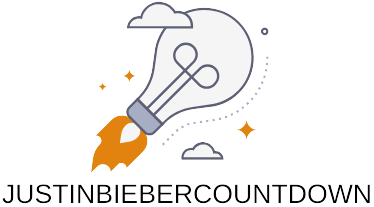Table of Contents
ToggleIn a world where technology seems to know everything about us, ChatGPT stands out as a quirky digital companion. But what exactly does this AI marvel have access to? Spoiler alert: it’s not your secret cookie recipe or your Netflix binge list. Instead, it taps into a vast ocean of information to provide answers, insights, and maybe a few dad jokes along the way.
Overview of ChatGPT
ChatGPT serves as an advanced AI language model designed to assist users by generating human-like text. This model accesses a vast array of information from diverse sources, such as books, articles, and websites, to deliver responses. Information retrieval occurs through sophisticated algorithms that synthesize and analyze data, generating insightful answers.
Understanding the limitations is crucial. Personal data from users remains secure and inaccessible to the model. Specific inquiries, like secret recipes or individual viewing habits, do not trigger any data privacy concerns.
ChatGPT specializes in providing knowledge across various topics, including science, technology, and general advice. The goal centers around enhancing user interaction through instant responses to queries. Various contexts, from casual conversations to formal discussions, allow for broad applicability.
Natural language processing capabilities empower ChatGPT to interpret questions accurately and provide pertinent information. Engagement becomes more fluid as the model maintains context during interactions, making conversations coherent.
Expanding its utility is important. Users can expect insights ranging from educational content to cultural discussions. The capacity to adapt to different conversational tones establishes ChatGPT as a versatile digital assistant.
Efficient answers support users in their quests for information. Content provided is based on extensive training data, ensuring relevance and adherence to established knowledge. ChatGPT continues to evolve, reflecting advancements in AI and natural language understanding.
Understanding Access Permissions

ChatGPT operates under specific access guidelines, focusing on data protection and user privacy. It utilizes information only from user inputs and publicly available sources, ensuring no personal data reaches the model.
Data Input and User Queries
User queries represent the primary data input for ChatGPT. Each question or request submitted allows the model to generate relevant and contextual responses. Users control this input, deciding the nature and specificity of inquiries. When formulating answers, ChatGPT relies entirely on this input while respecting the confidentiality of user information. The interaction is designed to prioritize the user’s requests, making each response tailored and informative.
Contextual Knowledge
Contextual knowledge remains vital for ChatGPT’s performance. Trained on a plethora of topics, it integrates information from a wide range of sources, ensuring depth and accuracy in conversations. The model utilizes context from the current interaction to enhance coherence and relevance in replies. This ability allows ChatGPT to adapt to various subject matters and conversational styles. Access to this diverse knowledge enables the AI to provide enriched insights that align with user needs.
Privacy and Security Measures
ChatGPT operates with a strong emphasis on privacy and security. The platform prioritizes user trust by ensuring data protection throughout interactions.
User Data Handling
User inputs represent the only data ChatGPT handles. Information is not stored or shared; sessions remain confidential. Any responses generated rely solely on the provided user queries and publicly available knowledge. ChatGPT doesn’t track personal data from conversations, enabling a secure interaction environment. Safeguards prevent unauthorized access, maintaining user anonymity throughout the process.
Compliance with Regulations
Compliance with data protection regulations is a critical aspect. ChatGPT adheres to standards such as GDPR and CCPA, ensuring user rights and privacy in various regions. Legal frameworks guide operational procedures, reinforcing commitments to secure data practices. Regular assessments validate that ChatGPT meets evolving regulatory requirements, further enhancing user confidence in privacy protections.
Limitations of Access
ChatGPT has important limitations concerning access to information. By understanding these constraints, users gain clarity on how interactions function.
Real-Time Updates
ChatGPT does not provide real-time updates. Information it utilizes comes from a wide array of sources, primarily up to the last training cut-off in 2023. While this allows for rich and varied responses, it lacks the ability to incorporate the latest news or live events. Users receiving information on current events should verify from dependable, real-time sources. Example situations include sports scores or stock market trends. With this in mind, users benefit from using ChatGPT primarily for pre-existing knowledge rather than real-time data.
Specific Content Restrictions
Content restrictions significantly shape interactions with ChatGPT. The AI does not generate explicit content or engage in discussions related to illegal activities. Ethical guidelines steer the model to maintain a standard that prioritizes safety. Individuals seeking sensitive or harmful topics find that access to such information is restricted. This policy establishes a framework for constructive and responsible conversations. In essence, ChatGPT focuses on providing informative and relevant insights while upholding these necessary boundaries.
ChatGPT stands out as a powerful tool in the digital landscape. Its ability to generate human-like text while respecting user privacy sets it apart from many other technologies. By focusing on publicly available information and user inputs, it ensures that personal data remains secure and confidential.
The model’s commitment to ethical guidelines and compliance with data protection regulations further enhances its reliability. As it continues to evolve, users can expect improved interactions that prioritize both informative content and user trust. With ChatGPT, the future of AI communication looks promising and secure.






